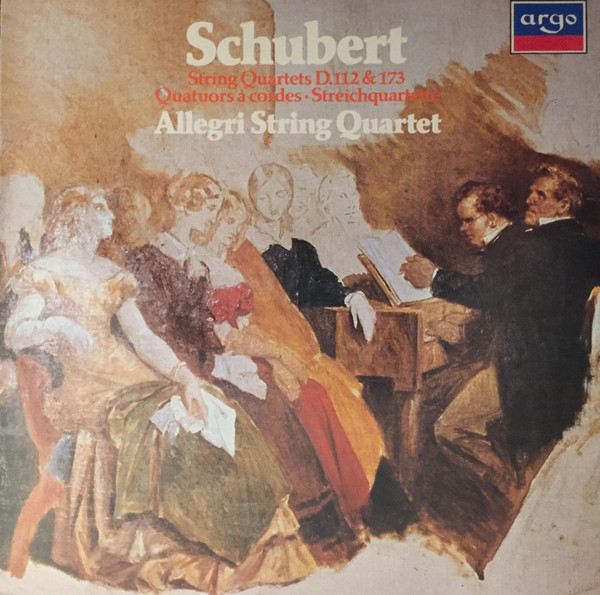Another two of Schubert youthful works, numbers 8 and 9. The Allegri Quartet was founded in 1953, but has changed its members a total of eighteen times. It still exists, but as one reviewer wrote: It’s a little difficult […] to be excited about an album celebrating the 50th anniversary of an ensemble whose name is its only consistent element over time (2023, TiVo Corporation). That review has nothing good to say about that 50th anniversary album, but none of the works presented here are on that album.
Maybe I’m just interested in these quartets because they are not recorded that much. It is nice to hear something new. I am wondering what happens to recordings like this in a time that a listener can so easily switch to a better one. Imagine you have a hundred recordings of this work at your disposal. That is nice, right? But what happens to the less-than-perfect recordings out there?
There is an effect in sales, that happened at the start of online shopping. It was a blessing for products that never made it into the shops, because they were never sold. Shops didn’t want to stock them, because they just took valuable shelf space, without ever selling. Online it was possible to sell these, because the cost of the shelf was barely an issue. It is called the long tail: if you put the sales numbers on a graph, you will get a line that is dropping quickly at one point. And then it goes on and on, for the endless number of products that almost never sell: the long tail.
Is streaming music in a subscription suffering from the adverse effect? The long tail is never notived, or is not chosen in favour of better performances. I highly doubt it is a beneficial effect.
